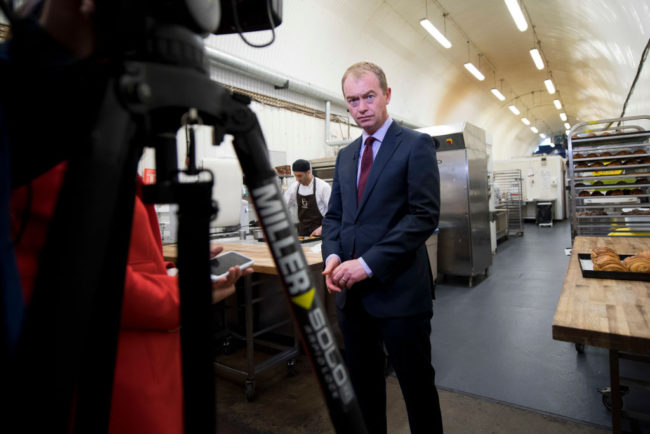Liberal Democrat leader Tim Farron admits he decided to resign after just two weeks

Tim Farron has admitted he wanted to resign as Liberal Democrat leader long before the election.
The Cumbria MP became embroiled in a gay sex row from day one of the surprise campaign.
Farron admitted he felt in a “personal quandary” over the question of his faith and his politics.
He resigned as Lib Dem leader after the election, claiming he couldn’t reconcile his two belief sets.

Liberal Democrats leader Tim Farron
Now the political leader has admitted he decided to resign after just two weeks – when the gay sex row reached its peak.
He told BBC Five Live’s Emma Barnett: “I made the decision about two weeks into the election campaign.
“I thought there isn’t a way forward out of this without me either compromising or just causing damage to the party in the long run.”
Resigning as leader, he said: “The consequences of the focus on my faith is that I have found myself torn between living as a faithful Christian and serving as a political leader.
“A better, wiser person than me may have been able to deal with this more successfully, to have remained faithful to Christ while leading a political party in the current environment.
“To be a political leader – especially of a progressive, liberal party in 2017 – and to live as a committed Christian, to hold faithfully to the Bible’s teaching, has felt impossible for me.”
Mr Farron, who is an evangelical Christian, spent weeks dodging questions about whether he thinks gay sex is a sin before ultimately saying he does not.
In a Q&A with PinkNews before the election, Mr Farron said: “I am a proud advocate of LGBT equality and have a track record that demonstrates that.
“Initially I chose not to speak out on my views on gay sex as I really didn’t think anyone would want the General Election campaign to turn into a theological debate.
“As a leader of a political party, I don’t (and never will) see my role as making theological pronouncements. Nor did I think my role was to judge what is or isn’t a sin.
“However, it transpired that people formed an impression of me that was false and so I chose to speak out.
“I have made my view clear and now I hope the debate can move forward to addressing the massive injustices many LGBT+ people face in our society and abroad.”

